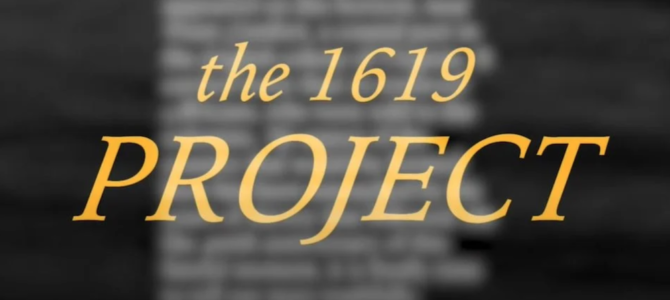
When the New York Times published an interactive version of their 1619 Project online in August 2019, they included the bold claim that the year 1619 is the United States’ “true founding.” At some point in the last year, while defending their project from the disputes of respected historians and issuing corrections for other central claims, the paper of record quietly omitted the controversial “founding” claim from its description.
A look at the source code of the original description found through internet archives confirms that lead essayist Nikole Hannah-Jones and the New York Times Magazine’s 1619 Project removed the line “understanding 1619 as our true founding,” from the description of the project sometime after August 2019.

Phil Magness, a historian, observed the newspaper’s deceptive edits on Twitter.
“Can the @nytimes‘s #1619project get any more dishonest? They appear to have edited their own website to remove the claim that 1619 was America’s “true founding” some time between August 2019 and @nhannahjones‘s denial today that she ever intended to claim that,” Magness wrote.
https://twitter.com/PhilWMagness/status/1307104492308123648?s=20
In a collage of side-by-side photos and screenshots of the archiving website, Magness demonstrates that the last record of the phrase used by the magazine’s site was in December 2019.
https://twitter.com/PhilWMagness/status/1307106474955603970?s=20
Hannah-Jones claimed that the edit occurred because “it did not match the copy of the print edition,” and attempted to defend the comments as rhetorical, before ultimately deleting her defensive tweets.



Hannah-Jones’s defense of the “founding” claim as “rhetorical” and not relevant because it did not appear in print rings hollow as she previously wrote in another now-deleted tweet from August 2019 that, “I argue that 1619 is our true founding.”

Indeed, even her Twitter banner photo at the time showed July 4, 1776 crossed out and replaced with August 20, 1619. She also made the claim in other Twitter debates.

Various articles published in the New York Times Magazine and other publications such as The Atlantic also captured Hannah-Jones and the project’s sentiments, sometimes even using the exact phrase listed in the original description: “understanding 1619 as our true founding.”
“The goal of The 1619 Project is to reframe American history by considering what it would mean to regard 1619 as our nation’s birth year. Doing so requires us to place the consequences of slavery and the contributions of black Americans at the very center of the story we tell ourselves about who we are as a country,” one New York Times Magazine article said of the project.
Despite her previous argument, however, Hannah-Jones took to Twitter numerous times in a series of now-deleted posts to claim that the “#1619Project does not argue that 1619 is our true founding” and qualify her statements.
“I’ve consistently said that the 1619 Project is AN origin story, not THE origin story,” she tweeted in July in an exchange with The Daily Wire’s Ben Shapiro.
A dishonest rejection of reality is central to the 1619 Project, as consistently exhibited by NHJ.
(H/t @redsteeze) pic.twitter.com/gyDsldKsGr
— AG (@AGHamilton29) September 18, 2020
https://twitter.com/PhilWMagness/status/1307126262322864129?s=20
https://twitter.com/Average67686896/status/1307180557831290880?s=20
The conversation surrounding the 1619 project began heating up again Thursday when President Donald Trump announced the “1776 Commission,” which intends to “promote patriotic education” to combat the implementation of revisionist history and racist curricula such as the 1619 Project and critical race theory into American educational programs.
“The narratives about America being pushed by the far left and being chanted in the streets bear a striking resemblance to the anti-American propaganda of our adversaries,” Trump said, calling the 1619 Project “ideological poison.”
The 1619 Project "does not argue that 1776 was not the founding of the country, but what it does argue for is that we have largely treated slavery as an asterisk to the American story,” creator @nhannahjones says as President Trump has railed against it. https://t.co/2qsfDPKiV2 pic.twitter.com/2AR3Xqlvj0
— CNN (@CNN) September 18, 2020
Although they did not issue a correction for this editorial change, as journalistic ethical standards would require, the New York Times Magazine and the 1619 Project have had to issue for other false or misleading claims. In March, a correction was issued over Hannah-Jones’s claims that “slavery was a primary motivation of colonists in revolting against England.” The correction qualified the statement by saying “some of the colonists.”
Hannah-Jones also has a personal history of construing history to fit a narrative. In 1995, Hannah-Jones wrote an article attacking white people and making sweeping generalizations characterizing them as the “biggest murderer, rapist, pillager, and thief of the modern world.”
The New York Times did not respond to The Federalist’s request for comment.









